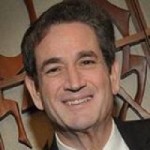“The Witness” finally closed his eyes last night

OCEANSIDE, California — Rev. Samuel “Billy” Kyles died on Tuesday evening, April 26, in Memphis at the age of 81. For the last 48 years of his life, he had been both burdened and motivated by his personal witnessing of a most barbaric act. Kyles directly beheld the murder of his friend, Martin Luther King Jr. outside Room 306 of the Lorraine Motel on April 4, 1968.
I came to know the tall and charming Billy Kyles, and to write about him, over the past several years, frequently spending time with him in Memphis. It was usually in or around the former Lorraine Motel, which is now the National Civil Rights Museum. On one occasion, Kyles, always trim and energetic, stood outside the doorway of Room 306 along the second floor balcony of the two-story blue and cream highway-deco former motel. He leaned over and spoke to a young white boy, sympathetically recounting The Story, gesturing empathically, pointing to the door and then diagonally to Mrs. Brewer’s boarding house across the way. It was from the dilapidated boarding house the assassin fired the single fatal shot.
The boy’s father stood a few steps off with a video camera and a grateful, privileged gaze coming from his plumpish face. Even from behind the lens, it was clear that the dad was attentive and moved. After all, Billy Kyles, pastor of the Monumental Baptist Church in Memphis for some fifty years, a decorated and credentialed civil rights veteran, close personal friend of Martin Luther King, had been standing in that exact spot at 6:01 PM on Thursday, April 4, 1968.
Billy Kyles would be changed forever—as would so many millions of human beings far removed from the balcony, the blood, the cartridge, the frozen numerals 306, the abruptly haunted metal-framed motel, the frenetic police, the garbage workers King had come to help, and a nation that would simply incinerate its soul that night in urban riots and explosions.
The third man on the balcony in 1968, King’s alter ego Reverend Ralph David Abernathy, emerged from Room 306 with knowing dread within seconds of hearing the report of gunfire. He kneeled over his dying friend while Billy Kyles briefly ran back into the room. Therein, unable to raise the inexplicably dead telephone line, Kyles began to let out with a guttural cascade of primal screams.
Billy’s hysteria and primordial fear discharged, he shortly emerged with an orange blanket from the bed and attempted to wrap the desperately bleeding King in it. Kyles also noticed a crumpled cigarette lying on the balcony that King had held in his hand; Kyles scooped it up into his own pocket because Martin Luther King Jr. always fretted that young people would be misguided if they saw him smoking.
For the stricken Reverend Kyles, whose wife Gwen waited at home with a banquet of hot soul food for Dr. King and company, containment was beginning in a new and unwelcome world outside the confines of Room 306.
For Kyles, the coping mechanism, born of his peaceful Baptist disciplines, his background in choral and dramaturgical skills—all seemed to immediately congeal around his need, his absolute compulsion, to tell the story. He was, after all, The Witness. He was the singular eyewitness to a crucifixion, there outside Room 306. Thus he was able to eventually walk again serenely with the dogwoods and azaleas and magnolias of Memphis, purposefully recalling the gospel of the balcony.
In time, he became a sort of ambassador of the assassination. He told the story to audiences all over the globe, sometimes in clumps of extended travel and time away from his understanding pulpit. From a gathering of elementary school kids in the inner city to an appearance on a network documentary, his role and his testimony would rarely deviate: “Dr. King died doing justice, Dr. King wasn’t leaving the scene of a crime, he died trying to help some GARBAGE WORKERS!” In the emphatic intonation, one could hear the flatter rhythm of his Chicago roots; Kyles was never quite as mellifluous as he was sincere—and wounded.
There was Billy Kyles, extroverted yet thoughtful, fit from the treadmill, removing his eyeglasses in a gesture of hyper-concentration, while narrowing his eyes. Even in the blazing sunlight of a Memphis afternoon, there would be nary a bead of sweat on his head; he spoke with pronounced hand gestures that made up for his not-so-deep voice.
Always dressed nattily and with quiet elegance, Billy Kyles remained the spiritual doorman to Room 306. He was the natural human liaison from the Lorraine Motel to that city of ghosts and psalms and grieving willows. If he hadn’t kept telling the story, the story would surely have consumed him.
I’m hoping Dr. King is waiting for Billy Kyles at the doorway to heaven.
[Adapted from my book, ‘ROOM 306: The National Story of the Lorraine Motel,’ Michigan State University Press, 2012.]
*
Rabbi Kamin is an author and freelance writer who may be contacted via ben.kamin@sdjewishworld.com . Comments intended for publication in the space below must be accompanied by the letter writer’s first and last name and by his/ her city and state of residence (city and country for those outside the U.S.)